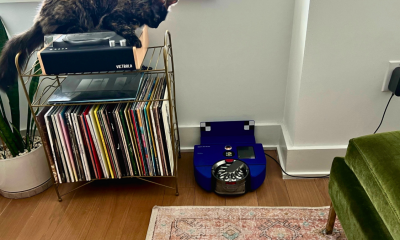Technology
The 32-hour, four-day workweek ‘killed work ethic’ at this startup


Ryan Carson says you have
to work hard and smart.
GrowthLab/YouTube
-
“Work smarter, not harder” has been a popular ethos in
recent years. -
Ryan Carson, founder and CEO of programming education
company Treehouse,
created a 32-hour, four-day workweek for his
employees. -
But now, he’s switched it back to a typical five-day
workweek. “It created this lack of work ethic in me that was
fundamentally detrimental,” he explained.
Ryan Carson, founder and CEO of programming education company
Treehouse,
made waves in 2015 when he announced that his 87 employees
would enjoy a four-day workweek.
“There’s no rule that you have to work 40 hours, you have to work
more to be successful,” Carson
told The Atlantic in 2015.
Three years later, Carson still doesn’t hew to the 40-hour
workweek.
He actually works 65 hours.
Carson
explained to GrowthLab Live recently that the four-day work
week he had for his employees was ultimately nixed in 2016.
“There was a lack of work, like literally a lack of work ethic,”
Carson said in a conversation with GrowthLab founder Ramit Sethi,
who also founded IWillTeachYouToBeRich.com.
“It created this lack of work ethic in me that was fundamentally
detrimental to the business and to our mission,” Carson added.
“It actually was a terrible thing.”
His experience goes against the growing workplace trend of
“work smarter, not harder,” and the idea that you can
hack your productivity and put in less time at work for more,
higher-quality output.
Perpetual Guardian, a New Zealand financial firm, is one of
the latest companies
to push for the four-day workweek, introducing trials of
shorter workweek earlier this year. And according to a New York Times article on the
company, it’s worked well.
“Supervisors said staff were more creative, their
attendance was better, they were on time, and they didn’t leave
early or take long breaks,” one of those researchers told The
Times. “Their actual job performance didn’t change when doing it
over four days instead of five.”
Back in 2015, Carson said he was motivated by those findings.
“I was the poster child for that,” Carson said in
the GrowthLab
video. “Literally, I was like, ‘F— the 40 hour workweek.
We’re going to work 32 hours, because who says we can’t, right?
Because we write the rules.'”
Now, he’s saying that you can’t hack your way out of putting in
the hours at work.
“The difference I want to communicate is, there is a certain
amount of hard work you have to do,” Carson said. “The whole like
grind thing is kinda bulls—. I think you can work smarter, but I
don’t think you cannot work harder. You gotta do both.”
-

 Business3 days ago
Business3 days agoAPI startup Noname Security nears $500M deal to sell itself to Akamai
-

 Business6 days ago
Business6 days agoYoshi Mobility has come a long way since gassing up cars on the side of the road
-

 Entertainment4 days ago
Entertainment4 days agoHow to watch ‘Argylle’: When and where is it streaming?
-

 Business4 days ago
Business4 days agoUS think tank Heritage Foundation hit by cyberattack
-

 Entertainment3 days ago
Entertainment3 days agoNASA discovered bacteria that wouldn’t die. Now it’s boosting sunscreen.
-

 Entertainment4 days ago
Entertainment4 days agoCrypto and taxes: Which forms you need to file
-

 Entertainment3 days ago
Entertainment3 days agoDyson 360 Vis Nav robot vacuum review: Dyson should just stick to upright vacuums
-

 Business3 days ago
Business3 days agoTesla drops prices, Meta confirms Llama 3 release, and Apple allows emulators in the App Store



















